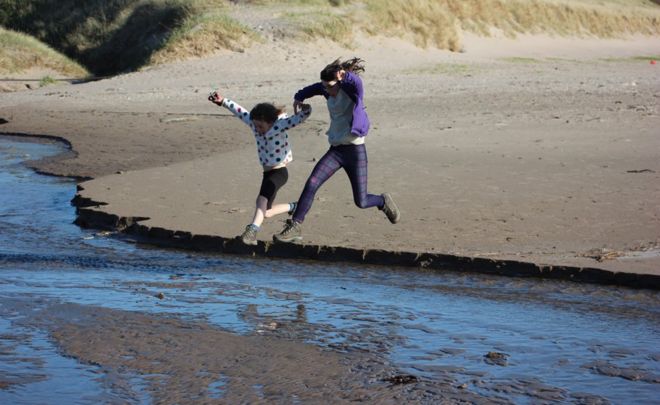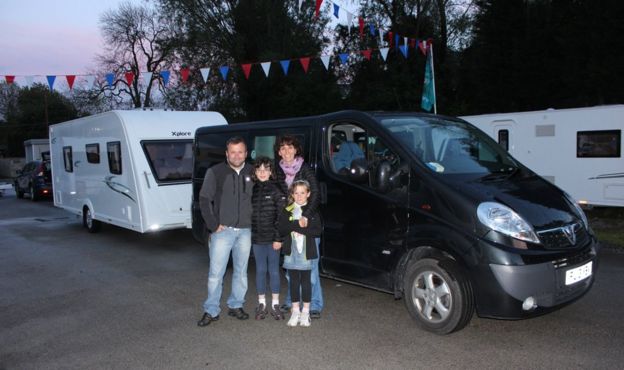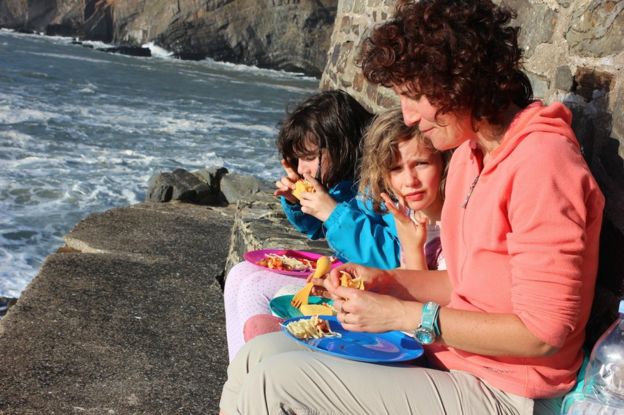Love Notes – Shaykh Yahya Ibrahim, Australia
بسم الله الرحمن الرحيم

- A study looked at Muslim couples who get divorced:
- Shaykh mentioned 68% of couples in the UK will divorce in the first 3 years of marriage.
○ Most of those who got divorced are educated
○ Many of them had the kind of jobs, where they intervene to defuse conflict
● The intent of the course is to speak about love to Muslims from a philosophical perspective
● We will talk about what makes you, you?
○ What does Islam offer, to make you the best of you
● Look at the words that are used to describe marriage and love in Islam
○ Imam Ibn Hazm coined the word soul mate – the first time westerners saw that a soul can love another soul
○ Imam Ibn Qayim RH has a book called Rawdat Al Muhibeen
○ Ibn Ul Jawzi RH – Said if a man does not know how to love, he should eat hay, because he’s a donkey
○ Muslims saw that we should cling onto one another and love one another so we can become khulafah on the earth → so that children can receive the earth in a way that is better than the way that we received it, that is the concept of khulafah
● There is no book of hadith that does not mention the love between the Prophet SAW and his wives
○ The year that Khadijah RA died, became the year of sadness
○ The Prophet SAW is a role model
● What the poster doesn’t show
○ Doesn’t show what’s behind them
● When the Prophet SAW talks about marriage, he says it’s half of your deen
○ You actualize a lot of the characteristics of Islam during your relationship with your spouse
○ The money that a man spends on his family is “sadaqah” [Muslim]
- When you say the shahadah, it has conditions,
○ You begin to learn the importance of Allah when you gather knowledge [ilm]
○ The second step is [yaqeen] certainty
○ That leads you to [inqiyad] submission, which leads you to practice, in the way that Allah swt requested
○ Number 5 is [sidq] to be more truthful with Allah swt
○ and that leads you to [Ikhlas], having enough, other than Allah, put all my trust to
○ Last level, is love [hob] → you begin loving Allah too much to miss prayer.
● Love is the last level of worship, and some people worship things that they should, Allah doesn’t say worship he says love “yohiboonahu ka hob illah” - ‘Uboodiya (worship) → anything Allah loves for you to do, whether it is a word you say, an action you do, or a feeling in your heart
● We are not here just to talk about romance, we are here to talk about love, loving your dad, your mom, your country.
Definitions
● The origin for the word “husband” or “spouse” is very different in English and Qur’anic Arabic
● Husbandry: “convincing a bull to sire a cow”
● Other words for “spouse” in the Quran
زَ وج ■
● [2:35]
● two distinct, unique individuals that upon joining, become one so you don’t see the seam between them.
ِلبَاس ■
● [2:187]
● your inner intimate garment is called libas; nobody is as close to you as that garment
● “libas ul harb” the armour of war, she is the shield from the dunya
َصا ِحبَة ■
● 42 words for love in the Arabic language
● Sahib: the one that walks with you for life
■
ن
قُ رةَ أَ ْعُي
● [25:74]
● “fills the eyes of your husband”
● “there is no provision greater than that of a righteous woman. She is a women that when a husband sees her, he feels happiness in the heart” [Muslim]
ِحصن ■
● She’s your fortress, palace, castle
● You are the moat that surrounds her
بَعِلي ■
● [11:72]
● “My spring/fountain of all good”
● He is the one that showers me with good, with his words, his wealth, etc
● That is how Sarah describes Ibrahim (AS)
● He created the heavens and earth in truth. He wraps the night over the day and wraps the day over the night and has subjected the sun and the moon, each running [its course] for a specified term. Unquestionably, He is the Exalted in Might, the Perpetual Forgiver. He created you from one soul. Then He made from it its mate… [39:5-6]
○ When Allah talks about all these dualities (heavens/earth, night/day, sun/moon), He inserts one singularity: one soul.
○ when you get married, you’re two separate entities that come together from one pairing
So exalted is Allah when you reach the evening and when you reach the morning. And
to Him is [due all] praise throughout the heavens and the earth. And [exalted is He] at
night and when you are at noon. He brings the living out of the dead and brings the
dead out of the living and brings to life the earth after its lifelessness. And thus will you
be brought out. And of His signs is that He created you from dust; then, suddenly you
were human beings dispersing [throughout the earth]. And of His signs is that He
created for you from yourselves mates that you may find tranquillity in them; and He
placed between you affection and mercy. Indeed in that are signs for a people who give thought. And of His signs is the creation of the heavens and the earth and the
diversity of your languages and your colours. Indeed, in that are signs for those of
knowledge. Surah Rum [30:17-22]
– He speaks about light and day – He speaks about the lifeless earth coming back to life and thriving with vegetation – Then he talks about the soul vs dust – And in the middle of all these he talks about the relationship in partners, and it is no longer about the dualities, it is about the singularity
→ Someone from yourselves, mates He likes it to- “signs” His about talking by verse ends AND begins -إِ ن فِي َٰذَِل َك َلَيَا ت – saying, “pay attention” – Prophet (SAW) – when Adam was created, our souls were created “like ants” – there’s a moment where the soul is brought to life. you’re born into this life and your soul itself is not extinguishable – Prophet (SAW) (Hadith of Imam Bukhari) – The souls when they were created in the time of Adam, they were brought into groupings, and the souls became familiar with one another – A long essay is written about this hadith, and it says if there is a bright soul, and it enters into a room of 1000 dark souls, and one bright soul, that soul would attach itself to the other bright soul – souls gravitate to each other … or make you hate each other’s guts – The concept of soul mates for us isn’t just husband and wife – your bffs, your parents, your teachers – scent is powerful – sometimes you might smell something in the air, maybe Coco Chanel like grandma wore…sometimes it really takes you back to a certain time in your life – Your soul remembers people, just like your scent does, and it brings warmness into your heart he said he ,(soul) روح the about asked was SAW Prophet the When – couldn’t say much that is in the knowledge of Allah and we don’t know much about it – Sometimes our soul pushes back people we should be attracted to, and that is because we need to purify our soul effort requires purification – قد أفلح من زكاها – – we attempt to connect with people for marriage and on paper they seem like reasonable candidates…but at that moment when you push back someone who is good, his soul might be too clean, and your soul might be a bit tarnished – your soul might not be accessible to that righteous man/women Good the with up matched usually is Good The – الطيبون لطيبات –
When you are looking for marriage – you need to make sure your soul is accessible to pious souls – don’t always put it on the other person
Quranic Stories about Spouses
The Qur’an is a holistic document that outlines a lifestyle for us. There are many lessons and examples for us to draw from.
● Adam (AS)
○ He asks for a “sahibah”, someone with him
○ Jannah is not enough. You need someone who loves you
■ Even the shaheed, looks behind and Allah gives him the news of them joining you
○ Allah creates for him and blesses him with his wife Hawa’
○ Allah tells Adam (AS) to not eat from the tree as Iblees is an enemy to you and Hawa [20:117]
■ (according to hadith, the greatest thing that the little shayateen can do to make Iblis happy is to convince a man and his wife to split up)
○ Iblis wanted to uncover the blessing that Allah SWT gave Adam, and expose their bad
○ Responsibility for the sin is greater on Adam (AS) (very different from other scriptures)
■ [20:121]
○ Adam AS and Hawa RA were separated when they descended to Earth
■ Jeddah got its name from Jaddah, the Arabic word for grandmother. It is where Hawa’ is believed to have descended
■ Adam AS ‘arafa-ha, or, “recognized her” a little before Maghrib and it is the same day we commemorate on ‘Arafa during Hajj
■ That is when Adam made that dua’a “Rabbana dhalamna anfusana…”
“Our Lord, we have wronged ourselves, and if You do not forgive us
and have mercy upon us, we will surely be among the losers.”
■ That dua’a and that moment of worship commemorates a moment of love that millions of people recreate on Yawm al ‘Arafa
■ Then they came together, and worshiped Allah SWT The first place that a person made sujood to Allah SWT was Adam, inside the fortified walls of the ka’abah.
● Ayyoub (AS)
○ Lots of time people say, we should have patience/endurance like Ayoub (AS)
○ For the first 50 years of his life, Allah gave him prosperity
■ (he had 7 daughters and 7 sons, wealth, the people who he was sent to preach to accept him)
○ After 50 years of prosperity, Allah began to test him.
■ The earthquake made his house collapse and children all died at once;
■ All his servants were killed and wealth looted;
■ people thought he was a false prophet, because “why would God do this to a righteous prophet? he must be cursed.” everyone left his side;
■ His body became decayed and sickly
○ His wife stayed. This man who had everything, lost everything, except his wife
■ The woman who was a mistress of the house became a servant
■ People did not want to be near her as to not “catch her curse”
■ She would ask Ayoub to make dua’a to Allah, and Ayoub said “I am shy to ask Allah after 50 years of prosperity, to ask Allah for relief after only 4 years of hardship”
■ His wife came back with food and when he asked where it came from she pulled back her scarf (she had cut her hair and sold it for food)
○ After seeing his wife suffer, this man (AS) of patience made dua’a “My lord harm has touched me and my family, and you are the most merciful of those who show mercy”
■ It was as if Allah was just waiting for him to ask…
■ A spring gushed forth and Ayyub (AS) drank from the spring, and became young and has been given their life again and everything returned to him
■ The thing that moved Ayoub was love, it is that he loved his wife more than his own patience
○ The right of the servant is to be put before the right you owe Allah CIRCUMSTANTIALLY
■ If your wife (or mom or dad etc) falls sick, and you were going to hajj and your ihraam is on and your foot almost out the door, you stay.
→ The right your family member has on you is greater than that obligation to Allah
■ Abdullah Ibn Mubarak RH – Went for hajj and saw a dream of those who made hajj and their hajj was accepted. He saw the face of a man and where he lived
● Abdullah immediately went to see him. Upon meeting the man, he found that he had not made hajj! The man said that he was on his when he saw an impoverished man. He realized that he that the wealth he had planned to use to go
Love Notes By Sh Yahya Ibrahim 5 to hajj would be enough to get the man in need on his own two feet. So he gave it to him and made dua’a that he would get to go for Hajj later. THAT is the man that Abdullah saw with a shining face.
● Prophet Dawood (AS)
○ King of his time, had many wives
○ Looked over his marketplace and saw a beautiful woman. He asked if this woman is spoken for? They said no, but she is promised to the general.
■ for a moment Dawud (AS)’s heart thought “if that man becomes Shaheed… Allah give him Jannah” lol
○ (In Surah Saad)
■ Allah sent two men (really angels) that jump in front of him and he reels back. One of them says “don’t be scared, we are two men that are quarrelling. He has 99 sheep and I have 1 (representing blessings), and he keeps desiring my 1 sheep to complete his 1 00.
■ Dawud says, he has wronged you to even suggest that he should give you your sheep.
■ Then it clicked in his mind that it was a test from Allah! It was a message indicating that he (AS) have been blessed with so much, and that generally is the one who has that one sheep…so Dawud (AS) fell in prostration
○ The stories of the Quran are full of love and passion
● Nuh (AS)
○ Imagine you are some sheikh, and you are on the pulpit for Juma’a and you are telling it as it is…Then your wife walks out and says “It’s all nonsense! He is making it all up!” Your son is sitting there and saying, “PSHHH, don’t listen to this guy. He knows nothing.” (People would be like, when your family believes, then come talk to me lol”)
○ Your wife and your son become adversaries and they become leaders of those who disbelieve
○ Imagine that is you, just a sheikh – Imagine being the Prophet of Allah
○ Nuh AS never gives up
○ Nuh is on a ship on land that has been experiencing a drought for years and people are looking at him like he is crazy – until Allah swt orders the sky to let down its rain, and the sky gushes until the waves become the size of mountains
■ And Nuh asks his son, belief in God so I can let you on the ship, his son says, I don’t believe in you or your god or your ship, I’ll go up to that mountain and it will protect me from the waters
■ So he says, my son, none will be protected except those that are on this ship, and then he refuses and he becomes one of those who drowned
■ Nuh says to Allah “When you promise, it is true, you said you would save me and my family, he is part of me and he drowned” so Allah said, “he is not your family, forget him”
● The illegitimate is not to be loved, Allah will always get you out of those drowning waters and until the last moments Allah will provide you what is good – but he will never make the illegitimate, legitimate
● What makes you and I who we are? Why are the stories of the messengers something that still resonates with us?
○ Part 1: Jasad – 70% of us is water, 30% is organic
■ The difference between us and pigs is less than 1% (genetically speaking)
■ In the Quran: Those who know God, but do not accept God are like Cattle
○ Part 2: Mind
■ Rational being, we think and can anticipate what is happening
■ Allah has blessed the son of Adam with the mind, drugs and intoxicants are haram because they take away the mind
■ Don’t think that animals do not have emotions and feelings too
■ Sheikh plays this video
● Sometimes we think we are the only beings that actually matter
● Ibn Qayim writes 60 pages on Allah quoting the ant
○ Ant knows delegation & authority
○ Knows what is home & what isn’t
○ It knows name “Solomon”, and his troops (knows our functions)
○ And the ant makes an excuse (if they trample you then they don’t know)
○ Ibn Qayyim lists 11 types of language that the ant uses
■ Allah inspires the bees regarding how it can live its life
■ Don’t ever think that the world around you is meaningless, simple experiments show that there is so much more in the world that Allah created
■ They are a nation, just like you are a nation
○ Part 3: Soul
■ There are 3 components, and this 3rd part is what makes us insaan
■ The majesty of the soul lives in the heart – The heart is the throne of the soul
● The chest is what protects the heart
● Haritha (one of the sahabah) is walking and the Prophet SAW says how are you and he says I woke up a mu’min, Prophet SAW said why? He said when I pray it is if I see Allah but I do not see him; when I sin, I see the fire, but it is not
Love Notes By Sh Yahya Ibrahim 7 there; When I do good, I see Jannah, but I do not see it – So Prophet SAW touches his chest and he says you are a believer
● Hope, mercy, love of God is in your chest, it is important to keep that spirit true
● When Allah talks about Imaan he says Allah opened his chest to Imaan (that is the imagery given to us by Allah SWT)
● That is why the heart is so important to talk about love because the heart is what governs the rest of us
● When your heart is closer to Allah, it is easier to come closer to people à that is the beauty of the dua’ of Musa “’ishrahly sadry”, open my heart to people
● The premise of this class is to bring our hearts closer to Allah so that we can come close to his servants
■ The 3 levels are ascending levels
■ Islam also has 3 levels, Islam, Ihsan and Iman; Each of those 3 levels matches our 3 parts
● Islam (Jasad) – You must physically say the words of the shahadah, pray, fast, do Hajj, and give zakat, Islam matches the physicalness of you jasad
● Imaan (Akl) – Matches your mind, the 6 articles of faith cannot be qualified/rationalized, but they are believed. Iman came to subdue the rationale that pulls you away from Allah
● Ihsan (Ruh) – Even though you cannot see Allah in life, your heart is always aware of Allah. Everything you witness in life connects you to Allah
○ Imam Sufyan al Thawri is walking out of the masjid, and a man begins to abuse him, his students try to stop him, he says no leave him and he says “I know the sin that I did that brought this upon me”
○ Imam Sufyan RH would give his students 3 rules when teaching them:
■ Correct what is between you and Allah, and he will help you correct what is between you and mankind
■ Fix what is between you and Allah privately, he will make your public good with others
■ Remember Allah when you don’t need him, and he will know you when you need him
○ There are angels whose job is to catch our hadith (dua’a) and throw it back at us because it is not worthy of ascending – hadith of the Prophet SAW armour.
 Happiness or Money?
Happiness or Money?




 Maqam-e-Ibrahim refers to the stone on which Nabi Ibrahimﷺ would stand when he was building the Ka‘bah. As the height of the building rose, the stone would automatically rise, lifting Nabi Ibrahimﷺ so that he could continue to build the Ka’bah, and when it was time for Nabi Ibrahim ﷺ to return to the ground, the stone would automatically descend.
Maqam-e-Ibrahim refers to the stone on which Nabi Ibrahimﷺ would stand when he was building the Ka‘bah. As the height of the building rose, the stone would automatically rise, lifting Nabi Ibrahimﷺ so that he could continue to build the Ka’bah, and when it was time for Nabi Ibrahim ﷺ to return to the ground, the stone would automatically descend.


 Weddings are usually such happy occasions, full of love and hope for the future of the bride and groom. As wonderful as it can be, it can also mean mother-in-law problems. Something happens the moment a bride says, “I accept him.” Not only does she get a husband, but in most cases, a mother-in-law as well.
Weddings are usually such happy occasions, full of love and hope for the future of the bride and groom. As wonderful as it can be, it can also mean mother-in-law problems. Something happens the moment a bride says, “I accept him.” Not only does she get a husband, but in most cases, a mother-in-law as well.








